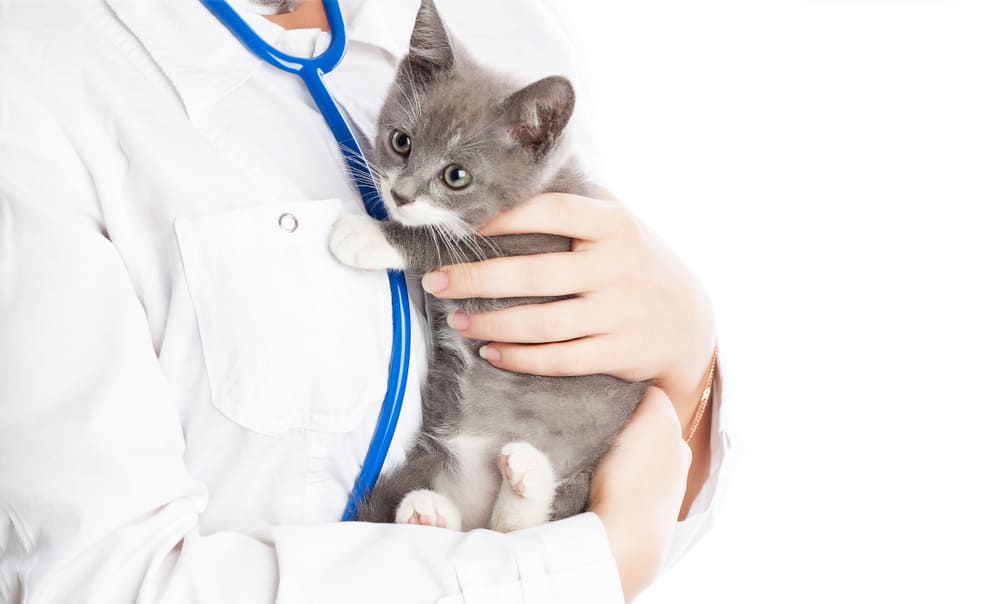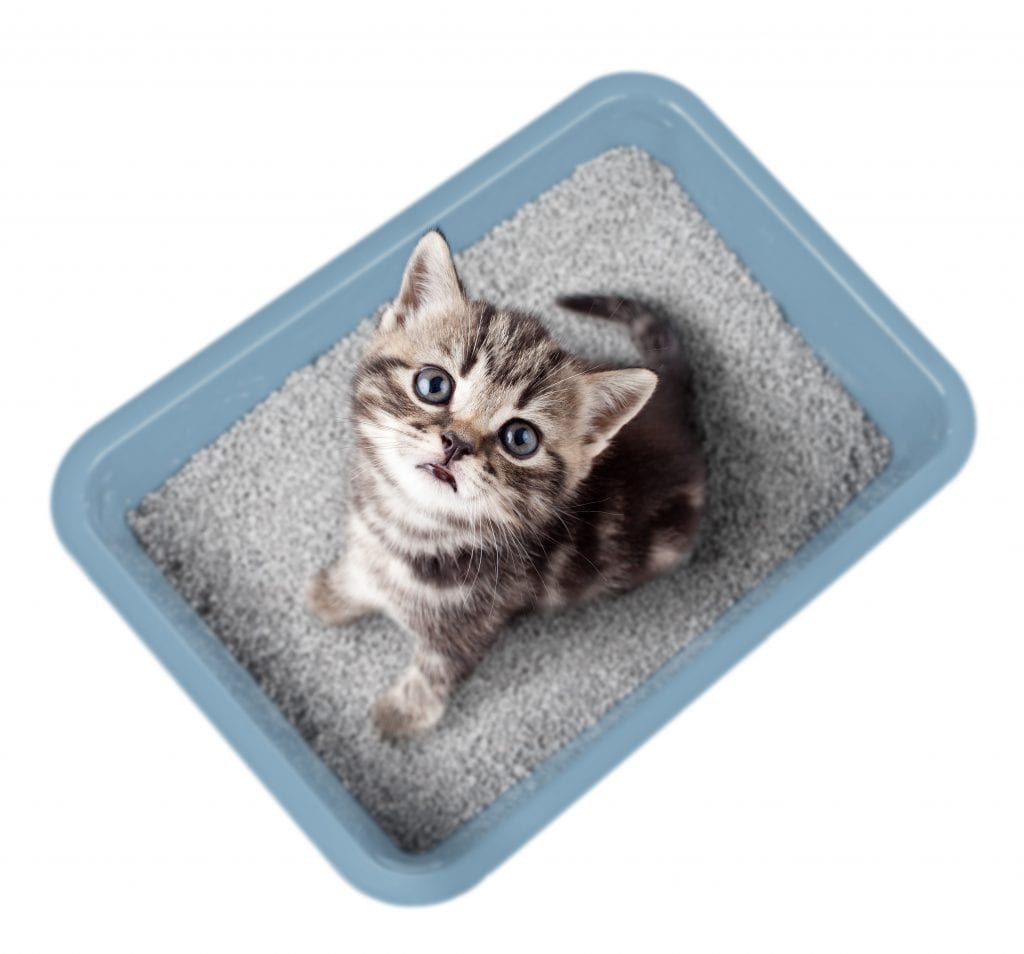Contents
All products and services on Project PAWS are independently selected by our editors, contributors, and veterinary experts. This post contains affiliate links. As an Amazon Associate I earn from qualifying purchases.To learn more, view my disclosure policy.
Last Updated on October 29, 2020 by Aimee
A Guide To Navigating The First Six Months With Your New Kitten: It can be so exciting to bring a kitten home, as your home is filled with so much entertainment and joy. The weeks watching your kitten learn new things, play, and grow can be mesmerizing and full of new adventures. It’s easy to get caught up in the excitement and play and forget about other necessary things that your kitten needs as they are developing and growing. We will discuss some of these things in this article, focusing on what your kitten will need during their first six months with you.
Veterinary Visits & Vaccines
Once you have brought your new kitten into your home, even if they have already received some vaccines (shots) from the person you got them from, it is extremely important to schedule an initial kitten visit with a veterinarian. This is so your kitten can get a good exam and check-up done to make sure they are healthy and to address any concerns or questions you may have about your new kitten directly with their doctor.

At this initial veterinary visit, their stool will be checked for parasites, such as roundworms, hookworms, and giardia. It is very common for kittens to have intestinal parasites, as they can easily get these from their mother. If any intestinal parasites are identified, your kitten will be given a de-wormer to make sure they are cleared from your kitten’s system.
Your kitten will likely also have a small blood sample taken to be tested for Feline Leukemia Virus and Feline Immunodeficiency Virus. This test is performed because these two viruses are rare, but still present in the cat population, and can be passed down from mom to offspring. Even though there is no treatment for these viruses, many cats can live long lives with these viruses in their system. However, it is good to know if a kitten tests positive so you can know what to expect as far as taking care of your kitten, things that may come up later in their life, and understanding that they may be more susceptible to other infections, such as upper respiratory infections. Additionally, these viruses are contagious and can be passed to other cats currently in the household or who may eventually join the household, so knowing if your kitten is positive for one of these viruses is important for the health of other cats they may come into contact with.
Your kitten will also need to be given all of their rounds of kitten shots to make sure they are protected from certain contagious diseases, such as feline panleukopenia virus. Panleukopenia can be deadly to kittens and it is very easy for a kitten to get infected by it, even if they aren’t in direct contact with other cats or kittens. The best way to prevent it is to make sure your kitten receives all of their kitten shots at the right time interval.
A typical vaccine schedule for a kitten may look like the following:
6-8 weeks of age:
first panleukopenia/herpes/calicivirus vaccine
first leukemia vaccine
10-12 weeks of age:
second panleukopenia/herpes/calicivirus vaccine
second leukemia vaccine
14-16 weeks of age:
third panleukopenia/herpes/calicivirus vaccine
rabies vaccine
Flea and & Parasite Prevention
Depending on the time of year, your kitten may have picked up some fleas. You’ll need to get them started on monthly flea prevention, and if they currently have fleas, give them a good bath to try to cleanse the fleas off of them. Your veterinarian is the best place to get the best new flea prevention medication, as some of the older ones just don’t work that well anymore. For kittens, most flea prevention comes in spot-on applications that you apply directly to your kitten’s skin, in between their shoulder blades. If it is the spring, summer, or fall, continue to give your kitten flea prevention each month so they don’t continue to get re-infested with fleas, as too many fleas on young kittens can make them anemic from the fleas feeding off of their blood.
**Important Note: kittens should only be given flea prevention that is specifically labeled for kittens. If they are inadvertently given a flea medication that is labeled for puppies or dogs, this could kill them.**
You will also need to start your kitten on monthly heartworm prevention, especially if you live in an area where heartworm disease is endemic, such as the Southern and Midwestern states of the United States. Heartworm prevention, just like flea prevention, is also typically given as a topical application, although there are some oral tablet forms. There are a couple of combination products that prevent fleas and heartworms at the same time that could be given, which is much easier- check with your veterinarian for these products if that interests you.
Starting heartworm prevention at a young age and continuing to give it every single month is the best way to prevent your kitten from getting heartworms. Most heartworm prevention products also treat for common intestinal parasites your kitten may pick up along the way if they ever go exploring supervised outside.
Nutrition
Your kitten should be able to eat dry kibble kitten food. It is ideal to feed them kitten food until they are at least six to eight months old, but it is okay if they sneak some food from the older cat or dog in the house from time to time. Just make sure their primary source of nutrition is from their kitten food.

Cats have very specific nutrient requirements as carnivores, and they must eat protein from meat sources to obtain all of the necessary amino acids and minerals to be healthy. Therefore, make sure to only feed them either manufactured store-bought kitten food, or consult with your veterinarian on a home-made recipe if that is important to you. They cannot be fed only tuna or vegan meals, as their body will become malnourished.
Once they are weaned from their mom, it is not necessary for them to drink milk anymore and water should suffice. If they like drinking your milk from your cereal bowl from time to time that is fine, but they only need a bowl of water sitting out for them to drink regularly.
Kitten Behavior & Training
It is never too early to train your kitten to have good behaviors. Even though they are small and their claws are not currently causing too much damage, go ahead and start training them on where it is okay for them to scratch and do not let them scratch places you want torn up. For instance, even though it may be cute how they climb up the back of the couch or even the curtains, stop them immediately in their tracks when you see them in the process of doing this and put them somewhere it is okay for them to climb. Doing these things now will decrease much headache down the road when they are an adult cat set in their ways and able to cause much more destruction.
Purchase tall, sturdy scratching posts that your kitten can scratch, jump, and play on without it feeling unsteady or falling. To encourage them to use this, place it in the center of the living room or where most of the activity happens in the home so they don’t have to go off somewhere by themselves to use it. You can also sprinkle some cat nip on it to draw their attention to it, as well as hide treats on it for them to find. When they do scratch on it, encourage them and let them know they are doing a good thing so they will want to scratch it instead of the furniture or carpet.
Your kitten has probably already easily learned to use the litter box when they need to urinate or defecate. Keeping the litter box in an easily accessible area, away from loud noises, will help continue this good behavior. If there are multiple kittens or other cats in the home, remember you should have a litter box per cat plus one additional litter box to help encourage your cats to use the litter boxes and not other places in the home.

Spaying & Neutering
Spay is the term used to describe removing the female kitten’s reproductive organs, while neuter is the term used to describe removing the male kitten’s reproductive organs.
Healthy kittens can be spayed and neutered anytime between four and six months of age. This will improve the odds of spaying and neutering them prior to reaching sexual maturity and avoiding some of the behavioral issues that can come along with that, such as urine marking or a female going through a heat cycle.
Getting a new kitten is an exciting adventure, and making sure they are receiving all of the things they need to be healthy physically and mentally as they grow into an adult cat can also be fun to navigate and be a part of!
Edited by Aimee Stock

